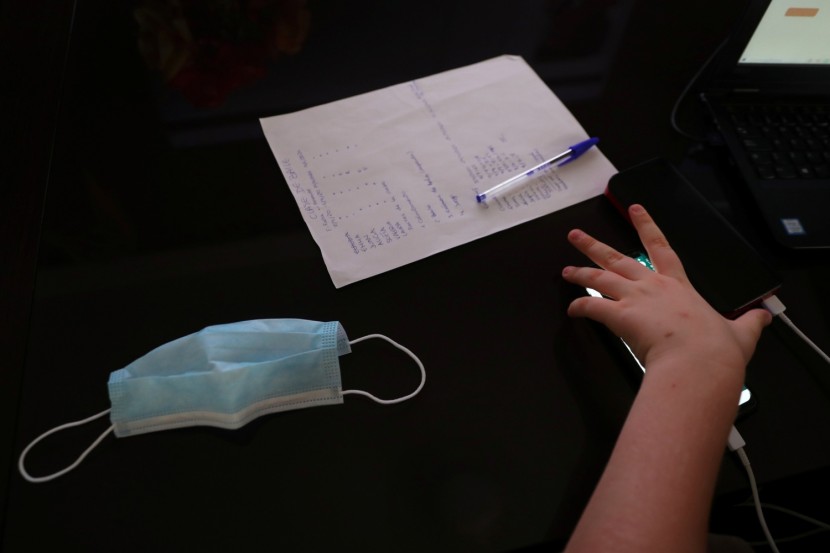
In an attempt to stop the spread of the new coronavirus, several states try to enforce the wearing of face-covering, amid the coronavirus crisis some people refuse to follow. One of the conspiracies being touted as an alibi for this is that wearing face masks can possibly result to carbon dioxide toxicity or known as hypercapnia. Given all reasonable face coverings ranging from home-made face masks, to surgical masks and N95 filtered masks, this does not happen.
According to Forbes, hastily-cobbled together graphics and memes currently circulating on social media insist that prolonged wearing of face masks can increase carbon dioxide levels that could result in a myriad of symptoms. One popular meme features a black and white illustration of a woman wearing an N95 mask on the Brooklyn Bridge, appearing content while holding a takeaway coffee. With a caption stating that is hypercapnia and coupled with a list of unpleasant symptoms. Dramatic, but carbon dioxide toxicity has nothing to do with walking across bridges, takeaway coffees, or even N95 masks.
Unless you are a plant, too much carbon dioxide is definitely bad for your health. Hypercapnia or carbon dioxide toxicity may result in an altered mental state, an irregular heartbeat, loss of consciousness, breathing difficulty, and can even be fatal. But a small number of people are endangered of experiencing hypercapnia in their daily lives while wearing face masks, face coverings, or not.
Let’s talk about some new #COVID19 dysinfo. In the past few wks, the claim that wearing a mask is medically harmful has been making the rounds.
The argument is that masks cause hypercapnia, which is an abnormally high level of CO2.
SciComm THREAD 1/ pic.twitter.com/exQHI8wTAo — Michelle Cohen, MD (@DocMCohen) May 11, 2020
Carbon dioxide molecules are so small to be held by the majority of mask materials and merely pass right through. For example, surgeons during long procedures wear surgical masks for hours with no ill-effects on their carbon dioxide levels. Having a surgeon with an altered mental state would not be in the best interest of the patient or even the surgeon, delightfully this does not happen.
Tighter-fitting masks made from denser materials, like N95 masks, used by health workers when coming close with Covid-19 infected patients will filter out coronavirus particles only if fitted appropriately. But these masks do not protect the wearer from gases and small molecules which pass freely through the filter because they are too small. To protect the wearer from gases, specialized self-contained respiratory equipment is needed, like the equipment worn by firefighters.
Whether wearing face coverings or not is a complicated topic and advice by public officials depends on the state. The argument behind wearing face masks is that they will likely reduce the spread of respiratory droplets from the exhaled breath of a person wearing the mask. Not that the covering holds up everything that comes out of the mouth or nose of a person from being released into the air.
How masks filter the air
How can masks reduce the spread of the new coronavirus, but not stop small molecules, such as carbon dioxide and oxygen from passing through? Coronavirus particles are approximately 125 nanometers, ranging from 60 to 140 nm.
They are so small that they could not be seen under regular microscopes and need specialized ones to be seen, unlike most fungi and bacteria which can be seen with light microscopes. However, carbon dioxide, oxygen, and other gaseous molecules in the air like nitrogen, are much smaller than the coronavirus and call pass right through both the filter and main material of N95 masks and pretty much any other home-made mask materials.
Though you cannot get hypercapnia from wearing face masks, it is a genuine concern for people in some environments like space, where oxygen and carbon dioxide levels must be tightly controlled to ensure the astronaut's health. Submarines and other large confined vessels with minimal ventilation are also of concern because of the potential danger of hypercapnia. Such scenarios have been studied by both NASA and the Navy.
Some arguments about those people with pre-existing breathing problems may experience difficulties when wearing masks, but this is irrelevant to most of the people and still won't involve hypercapnia. Most people who refuse to wear a mask while doing their daily business are not going to the moon or entering burning buildings. So the argument about not wearing face masks is easily discredited.








